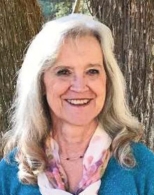ward scars. Words rip a person to pieces on the inside, breaking the spirit, leaving scars that sometimes never heal.
WHAT IS DEPRESSION?
It wasn't until my husband was diagnosed with PTSD that we recognized the connection to depression. PTSD can singularly cause intense and disturbing thoughts relating to the trauma a person has endured. The war was long over for my husband. But memories not only remained, they sometimes haunted him with tormenting flashbacks, and were reminders that turned up in dreams, compounding already tense emotions, and inciting fear and anger.
Depression can cause significant physical problems accentuating the mental state. Feelings of worthlessness and hopelessness can cause fatigue, irritability, unexplained physical pain, sleep problems and even thoughts of suicide or thoughts of harming another. This can be difficult to understand for both the patient and family.
When adding these elements together, then adding a disability component, the problem is greatly enhanced. Because of the war, my husband now had a disability. It wasn’t until years later, after working with a psychologist and getting the right medication, that we were finally able to live a much more serene life, despite knowing the Camp Lejeune contaminated water reports, potentially added new problems to the litany of medical issues he is facing. All of this causes him anxious moments and mental distress.
“The war was long over for my husband. But memories not only remained, they sometimes haunted him with tormenting flashbacks, and were reminders that turned up in dreams, compounding already tense emotions, and inciting fear and anger.”
CAREGIVERS NEED "CARE" TOO
As a society, we need to accept depression as a disease. Additionally, just as my children and I were directly affected by my husband's condition, it's a factor that rings true with other families. Dr. Zaki explains, "When a family member is depressed, everyone dealing and living with the patient gets affected. It affects the relationships and reflects on everyone."
Caregivers need to give love, offer advice (especially as a parent) and support loved ones as much as possible. But there is the need to take personal care, just from a good health perspective, especially for those who tend to the needs of a child (or spouse) with special needs.
Taking the time to include activities and habits to help deal with and navigate the emotional stress, illnesses that compound problems, unhappiness, and the "trapped and lost feelings" are paramount.
Mr. Hudson believes, "self-care is foundational." He begins encouraging this from the first session. He explains, it directly correlates with symptoms decreasing. Patients struggle with finding any pleasure in living. This struggle is transferred to self-care, making any positive action "challenging, overwhelming, undesirable and even exhausting for someone already fatigued."
Self-care methods include doing something you enjoy, like quilting, reading, playing music or taking time for another kind of hobby. Write about what is happening in your life; either in a personal journal, or create a blog and dialogue with others in similar situations. There are many ideas available. It's vital, that as care-giver, you take the time to take care of you, as well!
Depression steals natural abilities from its victims, and affects everyone it touches. Family structure is disintegrating, lifestyles changing, while communities are becoming more isolated. Anxiety, depression and other psychological diseases have found fertile places to grow. But there is hope. When outside factors improve or circumstances change, along with medications and counseling, normalcy can once again reign. •
References
- Alison Brunier and Carla Drysdale, Communication Officers World Health Organization. "Wake-up Call To All Countries To Step Up Mental Health Services And Support" March 2022. who.int/news/item/02-03-2022-covid-19-pandemic-triggers-25-increase-in-prevalence- of-anxiety-and-depression-worldwide
- American Academy of Pediatrics Staff. "Depression in Children and Teens" Last Updated 9/12/2022. healthychildren.org/English/health-issues/conditions/emotional- problems/Pages/childhood-depression-what-parents-can-do-to-help.aspx Source Adapted from Depression in Children and Adolescents: Types and Signs (American Academy of Pediatrics Copyright © 2021)
- CDC Staff. "Data and Statistics on Children's Mental Health" Last Reviewed: March 8, 2023 cdc.gov/childrensmentalhealth/data.html Source: National Center on Birth Defects and Developmental Disabilities, Centers for Disease Control and Prevention
- CDC/DHDS Staff. "The Mental Health of People with Disabilities" Last reviewed: 30 November 2020. cdc.gov/ncbddd/disabilityandhealth/features/mental-health-for-all.html Content source: National Center on Birth Defects and Developmental Disabilities, Centers for Disease Control and Prevention
- Hollins, Sheila (UK) and Allen, Eimear (UK) "Depression In People With Intellectual Disabilities" Updated in 2020. intellectualdisability.info/mental-health/articles/depression-in-people- with-intellectual-disabilities
- Recovery Ranch TN Staff "When Disability Leads To Depression" 1 April 2022 recoveryranch.com/addiction-blog/when-disability-leads-to-depression?
- UCL Staff. "People with disabilities more likely to be depressed, anxious and lonely during pandemic" 21 April 2021 ucl.ac.uk/news/2021/apr/people-disabilities-more-likely-be- depressed-anxious-and-lonely-during-pandemic
- Personal Email Interview, Dr. Wafik Zaki, MD, Family Medicine, 836 S 5th Ave, Denton, MD 21629; 1 August 2023; (410) 479-1388
- Personal Email Interview, Brad Hudson, Licensed Marriage and Family Therapist, Gillette WY; 7 July 2023; (307)-209-4649
ABOUT THE AUTHOR:

Margie Harding is a wife to Charles, mother to five adult children, grandmother to 17 grand children, and a loyal friend and writer. She has an AA degree in Early Elementary Education and, while not currently enrolled in any formal school environment, is a perpetual student in a variety of different subjects! She enjoys quilting, reading, and learning new things. Her passion is creative writing, particularly in special needs, but also in the Christian genre. She dabbles in other genres, as well. Find her on the web at margieharding.com and at Linkedln at https:llwww.linkedin.com/inlmargie-harding-6212a859